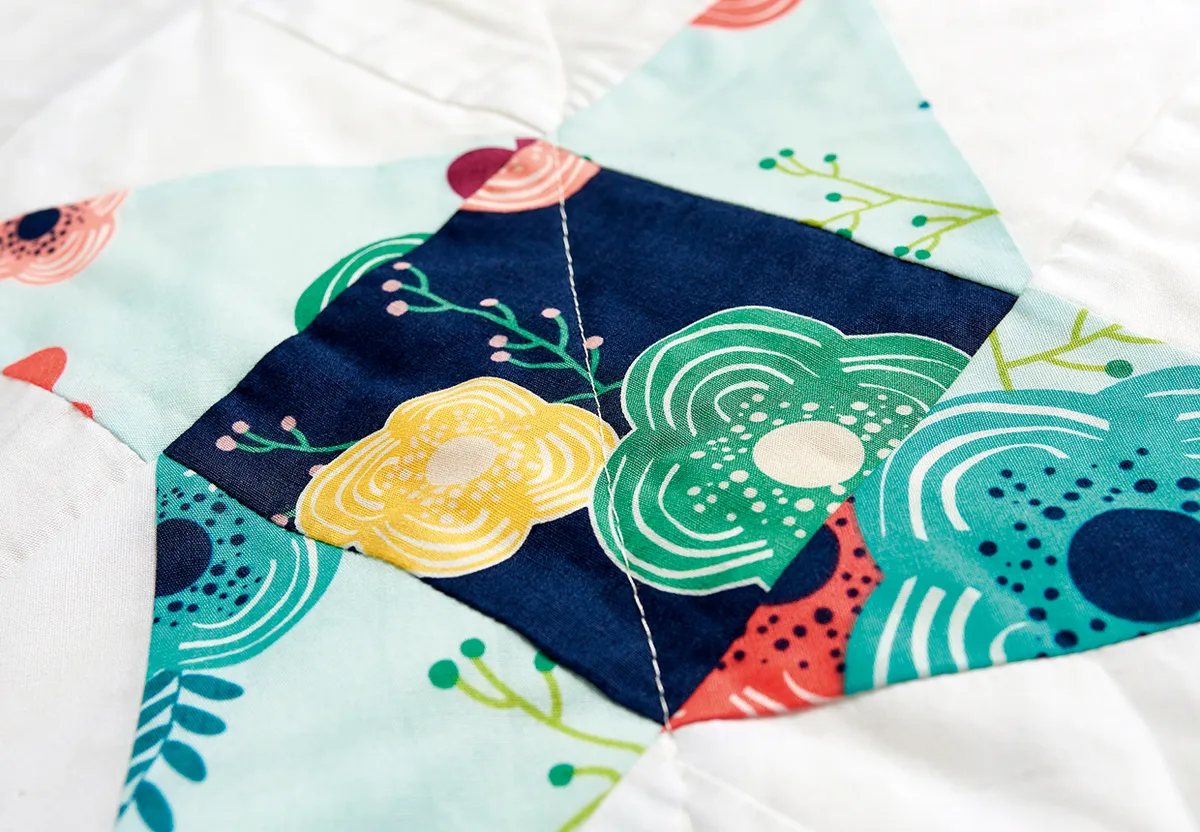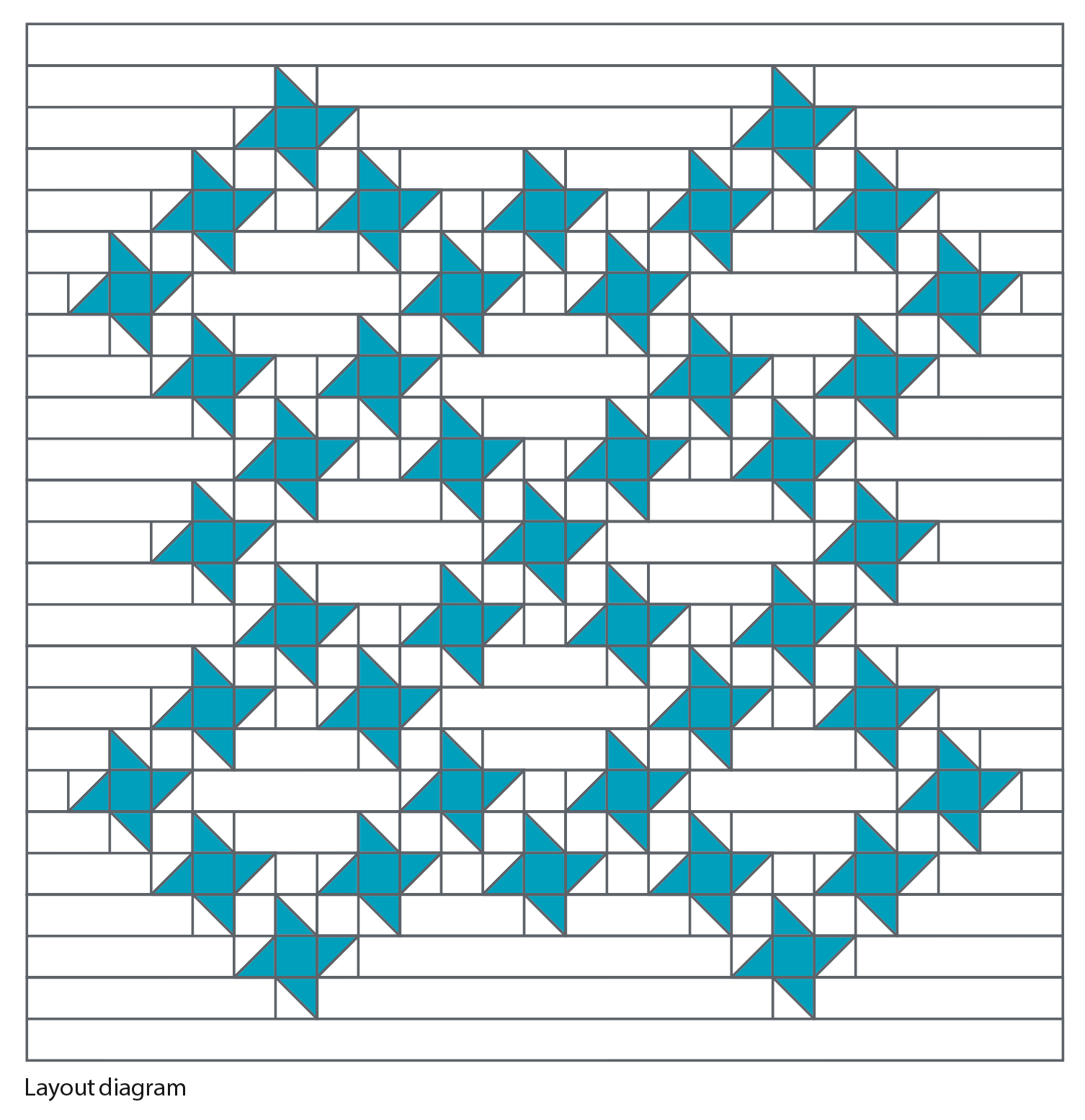Ah pinwheel quilts – how we salute you! These beautiful and classic quilt patterns are simple to piece together from half square triangles of fabric, making them a great beginner patchwork quilt project, as well as a speedy sew for more experienced quilters.
Mix up the colours to change the effect of your finished quilt. We've opted for low volume white background fabric here to really make our pinwheels pop, and laid out the pinwheels to form intersecting diamonds across the quilt top. In this free pinwheel quilt pattern we'll show you how to make your own, step by step, from cutting your fabrics to piecing the pinwheel quilting blocks and finishing your quilt.
This project was designed by Julie Rutter for Love Patchwork & Quilting magazine. If you love a contemporary quilt project, we've got more modern quilt patterns for you to try this year. If you're new to quilting, you might find our guide to the best sewing machines for quilting comes in handy when you decide which machine to invest in.
Discover more beginner-friendly quilt patterns here on Gathered:
How to make a pinwheels quilt: pattern and instructions
Fabric requirements
- Background fabric: 6½yds
- Six (6) low-volume print fabrics: ¼yd of each (pinwheel squares)
- Eleven (11) print fabrics: ¼yd of each (pinwheel HSTs)
- Binding fabric: ¾yd
- Backing fabric: 5¼yds
- Batting: 92in square
Finished size
- 87½in square approx
Notes
- Seam allowances are ¼in, unless otherwise noted.
- Press seams towards darker fabric, unless otherwise instructed.
- HST = half square triangle.
- RST = right sides together.
- WOF = width of fabric.
- Fabrics supplied by Art Gallery Fabrics.
Fabrics used
Print fabrics are assorted prints from collections by Art Gallery Fabrics, mostly from Happy Home by Caroline Hulse.





